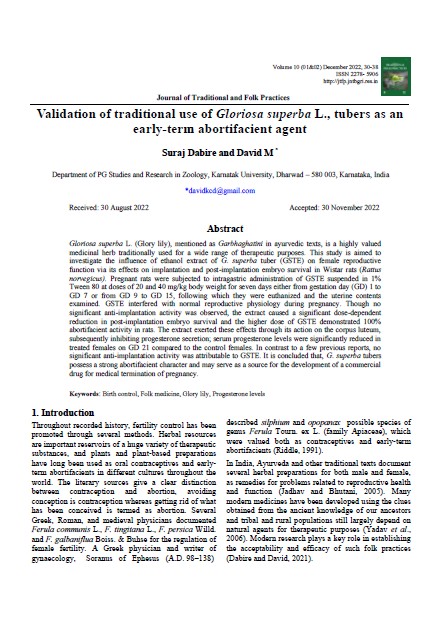Validation of traditional use of Gloriosa superba L., tubers as an early-term abortifacient agent
Keywords:
Birth control, Folk medicine, Glory lily, Progesterone levelsAbstract
Gloriosa superba L. (Glory lily), mentioned as Garbhaghatini in ayurvedic texts, is a highly valued medicinal herb traditionally used for a wide range of therapeutic purposes. This study is aimed to investigate the influence of ethanol extract of G. superba tuber (GSTE) on female reproductive function via its effects on implantation and post-implantation embryo survival in Wistar rats (Rattus norvegicus). Pregnant rats were subjected to intragastric administration of GSTE suspended in 1% Tween 80 at doses of 20 and 40 mg/kg body weight for seven days either from gestation day (GD) 1 to GD 7 or from GD 9 to GD 15, following which they were euthanized and the uterine contents examined. GSTE interfered with normal reproductive physiology during pregnancy. Though no significant anti-implantation activity was observed, the extract caused a significant dose-dependent reduction in post-implantation embryo survival and the higher dose of GSTE demonstrated 100% abortifacient activity in rats. The extract exerted these effects through its action on the corpus luteum, subsequently inhibiting progesterone secretion; serum progesterone levels were significantly reduced in treated females on GD 21 compared to the control females. In contrast to a few previous reports, no significant anti-implantation activity was attributable to GSTE. It is concluded that, G. superba tubers possess a strong abortifacient character and may serve as a source for the development of a commercial drug for medical termination of pregnancy.


